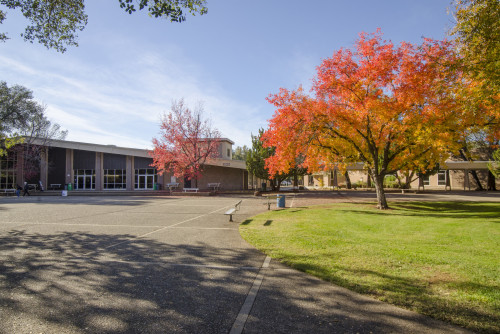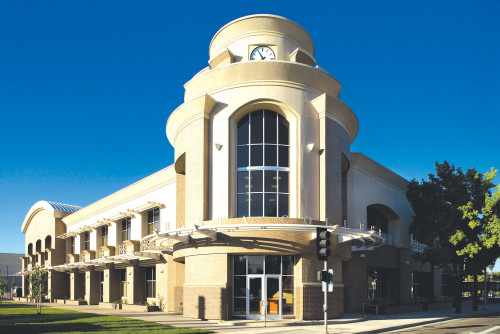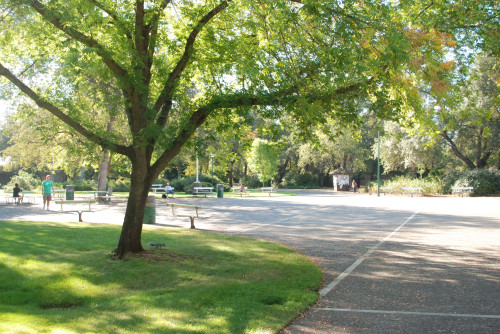Medical Assisting Certificate
Certificate | SC Program: CT.3452
Program Overview
To learn more about the program, please visit the Medical Assisting Certificate Program website.
Medical Assisting Certificate
The Medical Assisting Program prepares the student with the knowledge, skills, and distinctive qualities necessary for the medical assisting profession. The medical assistant possesses a broad scope of skills which make them ideal allied health professionals in the ambulatory care setting. During this program, students will learn vitals, EKG, venipuncture, injections and pharmacology, assisting in minor office surgery, waived testing, patient advocacy and education, medical terminology, basic anatomy, physiology, and microbiology, as well as medical office administrative tasks. Such versatility affords graduates the opportunity to find employment in clinics, urgent-care facilities, primary care and specialty physician offices, including podiatry, chiropractic, and optometry.
Medical assistants have also found employment in medical laboratories, surgical centers, electrocardiography departments in hospitals, government agencies, and educational institutions. Core coursework can be completed in two semesters, including 4-week externship (162 hours). A Certificate of Achievement may be earned by completing all courses with a grade of “C” or better. The medical assisting profession is highly diversified, and the work is challenging and personally rewarding.
This certificate is approved through the California Community College Chancellor’s Office. Upon satisfactory completion of all degree requirements and filing an application for graduation with Admissions and Records, the student’s transcript will reflect completion of this certificate.
Program Learning Outcomes
Upon successful completion of this certificate, the student should be able to:
- Apply the knowledge and skills needed to perform entry-level competencies in clinical and administrative medical assisting as outlined by the American Association of Medical Assistants (AAMA).
- Apply the knowledge and skills necessary to successfully pass the certification exam through NHA, NCCT, or CCBMA.
- Apply knowledge, skills, and professionalism necessary to compete in the job market.
- Demonstrate the ability to work effectively as an individual and collaboratively as a team member to resolve challenges in a changing healthcare environment.
Student Selection and Fees
Space in the program is limited. In order to be eligible for enrollment, students must satisfy the prerequisites listed and file a program enrollment packet with the Admissions Office during designated enrollment periods. Students are enrolled on a first come first serve basis until classes are full.
To begin the program, the student must:
- Complete the Admission Application for Shasta College or be an active Shasta College student.
- Enroll in courses following the recommended sequence of courses for the Medical Assisting Program.
- Submit all required paperwork before beginning ALH coursework.
- Submit proof of a high school diploma.
- Provide a copy of current negative tuberculosis screening.
- Submit proof of immunizations or immunity.
Additional fees include
- Textbooks
- Transportation costs related to externship
- Immunizations
- Scrubs, athletic shoes, stethoscope
- Certification fees



Choose your path
Map your education by viewing the program map for the degree or certificate you’re interested in earning below. Meet with a counselor to create your official comprehensive education plan.
A program map shows all the required and recommended courses you need to graduate and a suggested order in which you should take them. The suggested sequence of courses is based on enrollment and includes all major and general education courses required for the degree.
First Semester
12 Units TotalThis course serves as a foundation course for the medical assistant student. In this course students will be oriented to the medical office and the role of the medical assistant, with a focus on the health care team, law and ethics, professional communication, administrative responsibilities, vital signs, and emergency response. This course may be offered in a distance education format.
This course serves as the corresponding lab for Medical Assisting Core. In this course students will demonstrate skills relevant to administrative medical assisting, professional communications, vital signs, and emergency response. This course may be offered in distance education format.
In this course students will learn the principles of infection control, medical asepsis, and regulatory guidelines in the medical lab. Also discussed are exams and procedures from the pediatric to geriatric patient, including gender specific exams. Students will learn their role in minor office surgery, diagnostic imaging, rehabilitation, and therapeutic modalities. This course may be offered in a distance education format.
In this course students will learn the principles of infection control, medical asepsis, and regulatory guidelines in the medical lab. Also discussed are exams and procedures from the pediatric to geriatric patient, including gender specific exams. Students will learn their role in minor office surgery, diagnostic imaging, rehabilitation, and therapeutic modalities. This course may be offered in a distance education format.
Second Semester
12 Units TotalIn this course students will learn the principles of nutrition, basic pharmacology, drug calculations and administration, introduction to the medical lab, phlebotomy, hematology, urinalysis, basic microbiology, electrocardiography, and specialty lab tests. This course may be offered in a distance education format.
This course serves as the corresponding lab for Clinical Medical Assisting II. In a lab environment, students will develop proficiency in skills related to basic pharmacology, drug calculations and administration, phlebotomy, hematology, urinalysis, basic microbiology, electrocardiography, and specialty lab tests. This course may be offered in a distance education format.
Note: In order to participate in ALH 110, students must have successfully completed all program requirements.
This course is a culmination of the Medical Assisting Program where students are placed in a medical office in order to apply what they have learned in the classroom in the healthcare setting. Students must complete 162 hours of verified, supervised clinical experience in a healthcare setting. The course stresses professional work habits and meeting of required competencies through actual clinical performance with a preceptor. The student will practice skills learned during the course of the program and/or any additional skills that are within the medical assistant's scope of practice.
Please see a counselor to discuss options for meeting general education requirements for transfer to California State Universities (CSU) and/or University of California (UC) campuses, as well as any specific additional courses that may be required by your chosen institution of transfer.
*Alternative Courses: Please see a Shasta College counselor for alternative course options. You can also view the following to find other courses to meet degree/certificate requirements:
- California State Universities – General Education
- IGETC – Intersegmental General Education Transfer Curriculum
Contact Us for More Information
Counseling & Student Services
Contact InfoAcademic/Instructional Division Office
Health Sciences
Contact InfoStart Your Future at Shasta College
We are dedicated to helping you reach your educational and career goals. To begin your journey, apply for admissions today!
